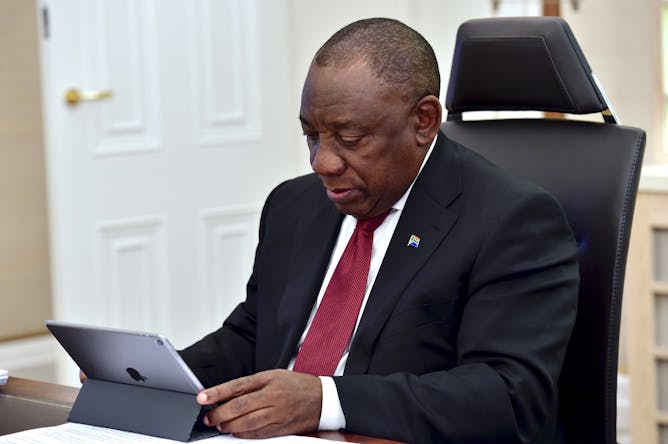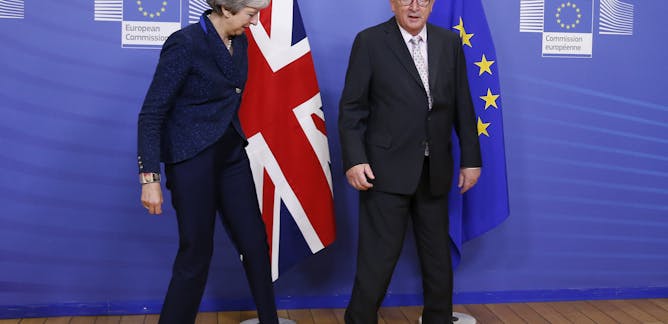
Supporters of Shiite Houthi rebels attend a rally in Sanaa, Yemen, in 2017.
AP Photo/Hani Mohammed, File
Myriam Renaud, University of Chicago
The Houthis belong to the Shiite branch of Islam. The Houthi insurgency began in the early 1990s, spurred in part by growing influence of different Sunni branches of Islam.
|

South African’s President Cyril Ramaphosa. One of the biggest obstacles to his success is the party he leads, the ANC.
Fllickr/GCIS
James Hamill, University of Leicester
For a long time South Africa thought it had a Jacob Zuma problem. In fact its got a systemic ANC problem.
|
Science + Technology
|

Gaathier Mahed, Nelson Mandela University
Many African countries tend to mismanage their groundwater resources.
| |

Adriano Reis e Lameira, University of St Andrews
Discovering that orangutans can communicate about things that happened in the past provides new clues to how human language evolved.
|
|
|
Business + Economy
|

Nieves Perez-Solorzano, University of Bristol
The EU realises the red lines it needs to meet are now the British parliament's, not Theresa May's.
| |

Carly McCann, University of Massachusetts Amherst; Donald T. Tomaskovic-Devey, University of Massachusetts Amherst
Two-thirds of people who report workplace sexual harassment say they lost their jobs or are retaliated against in other ways. Most never receive any money.
|
|
|